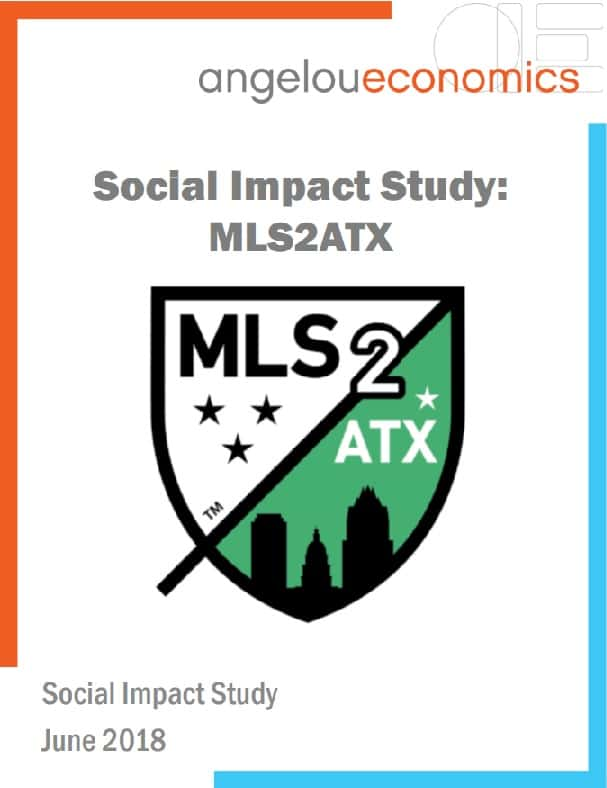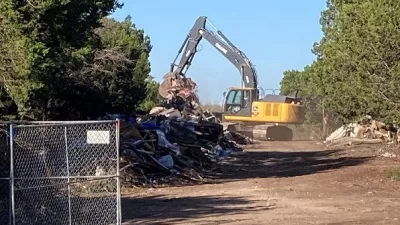Central Texas would see broad social benefits from having Major League Soccer in Austin, according to a report released by Precourt Sports Ventures, which has been trying to convince the City of Austin that a Major League Soccer team and stadium are a good fit for Central Texas.
Precourt Sports Ventures’ MLS2ATX commissioned the study, which was conducted by Austin-based AngelouEconomics. PSV says goal was to go beyond economic impact findings and to see what a soccer stadium and MLS club could mean to the fabric of the community over its first 25-year timeframe.
The report examines the social capital, physical health outcomes, pro-social behavior and educational outcomes, mental health benefits and community solidarity benefits that Major League Soccer is expected to bring to Austin and surrounding areas. A move for Austin to land its first major league team hinges on Austin City Council voting to enter into negotiations with Precourt Sports Ventures (PSV) on June 28 to allow a privately funded, $200-million stadium to be built at McKalla Place in North Austin.
Angelos Angelou, author of the report, noted the following:
“More than just the positive economics of a new stadium, bringing MLS to Austin will create numerous positive social impacts. For example, PSV-sponsored youth programming will help improve educational outcomes, promote pro-social behavior and provide numerous mental health benefits. Austin is known for high-profile events, but MLS offers the missing link: a professional sports team with all the associated benefits, both economic and social.”
The social impact study details some of the expected results of the previously shared $93 million in community benefits offered by PSV. These include affordable housing and nonprofit contributions ($24.2 million), public access and park beautification ($11.2 million), and youth sports and wellness investments ($57.9 million). Specifics are found here.
“We are confident in the findings of the city’s assessment of the economic impact and also pleased that the social impact is shown to improve the quality of life in Austin,” Dave Greeley, president of Precourt Sports Ventures, said of the social impact study. “Major League Soccer in Austin would have clear, yet difficult to quantify positive social impacts on the community.”
AngelouEconomics reviewed the City of Austin commissioned economic impact report released on June 1 in-depth, and believes the overall economic impact and findings are reasonable, if not somewhat conservative. The city consultant, Brailsford & Dunlavey, estimated the project will generate over 500 annual full-time equivalent jobs regionally, 20-year economic impact at $474.2 million and wages at $460.7 million. That report also stated: “The project will also generate meaningful public tax revenues. The City of Austin benefits from $349,000 in sales and use tax in year one of operation and the Capital Metro Transit Authority (CMTA) is a recipient of the same total. The city also will also receive an estimated $322,000 from the hotel occupancy tax and $58,000 from the mixed beverage tax, for a combined total over $1.0 million annually. The project will generate fiscal benefits of $11.4 million to the city and $5.4 million to the CMTA when measured on a 20-year net present value basis at a 4.5{91a3a066265893d5d93b921204e5bbe4720deb431f82cc483a406ec22b140854} discount rate.”
The Austin City Council unanimously directed PSV to examine the viability of McKalla Place for a privately funded soccer stadium and soccer park. Council members are expected to vote June 28 to allow negotiations to begin with PSV.





